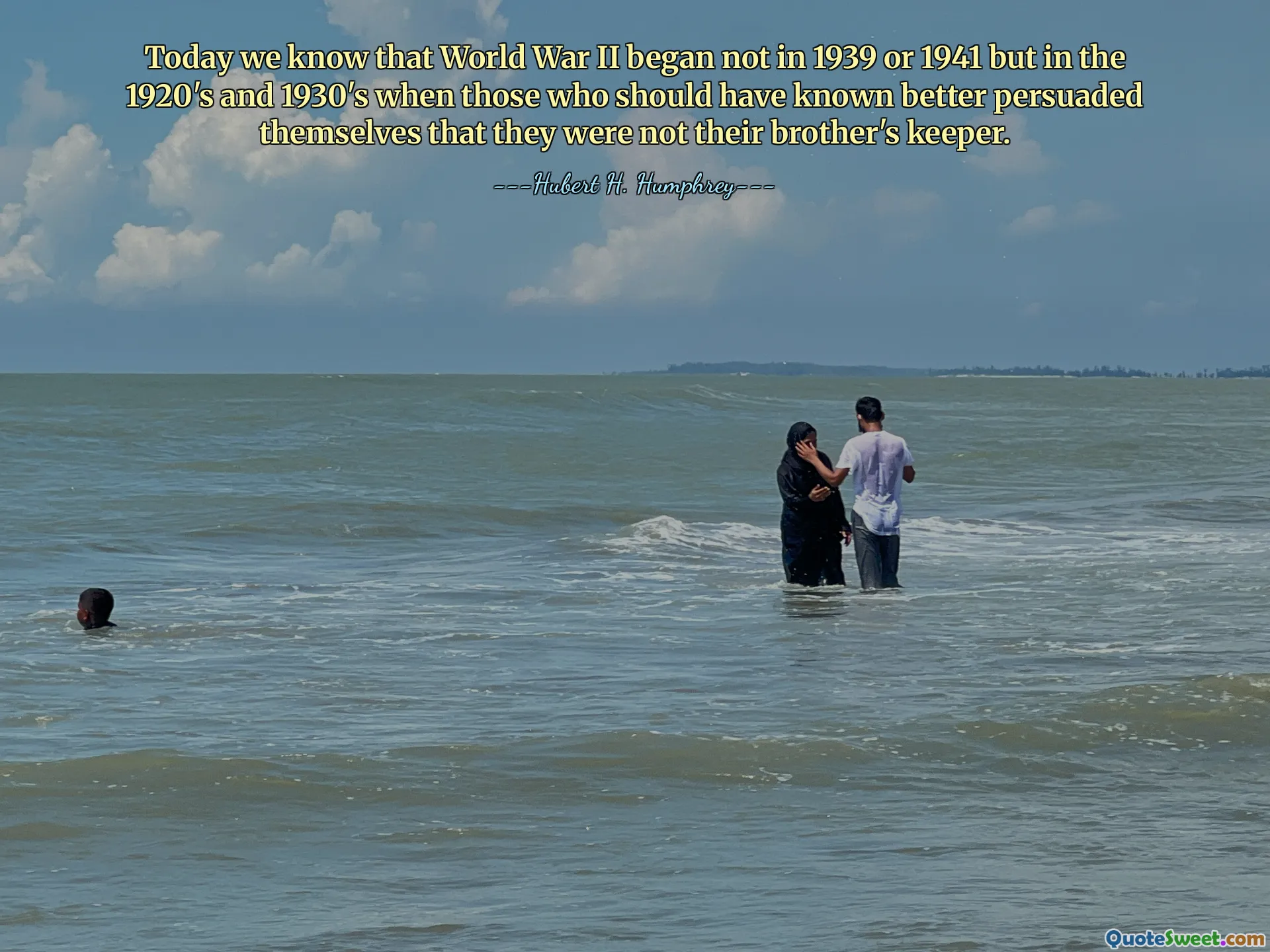
Today we know that World War II began not in 1939 or 1941 but in the 1920's and 1930's when those who should have known better persuaded themselves that they were not their brother's keeper.
This quote emphasizes the idea that the origins of major conflicts like World War II cannot be solely pinpointed to the official outbreak years but are rooted in the preceding political, social, and moral failures during the 1920s and 1930s. It suggests that the actions or inactions of individuals and governments during this period—choices driven by self-interest, complacency, or misguided priorities—contributed significantly to the conditions that made a global conflict inevitable. Reflecting on this, it becomes clear that history's lessons often lie in recognizing the significance of overlooked warning signs and moral responsibilities. The phrase 'not their brother's keeper' hints at a failure of empathy and accountability, implying that those in power may have ignored or diminished the importance of collective responsibility toward others' well-being. For contemporary society, this reminder underscores the importance of vigilance, moral clarity, and proactive measures to prevent conflicts. It suggests that neglect or rationalization during times of crisis can sow the seeds of future disasters. The quote challenges us to acknowledge that the tragedy of war isn't merely about battles fought but about the ethical failures that permit such conflicts to develop. Recognizing these lessons is vital in ensuring that modern nations and individuals alike uphold their duty to their communities and humanity, striving to prevent history from repeating itself through neglect or indifference to moral responsibilities.











